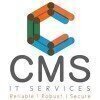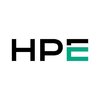Oracle Database Administrator
100+ Oracle Database Administrator Interview Questions and Answers

Asked in Wistron

Q. How can you recover deleted datafiles if backups are not available?
Recovering deleted datafiles without backup
Check if the datafiles are still in the operating system's recycle bin or trash folder
Use data recovery software to scan the hard drive for deleted files
If the above methods fail, try to recreate the datafiles using the CREATE DATAFILE command
If the tablespace is still intact, use the RMAN RECOVER TABLESPACE command to recover the data

Asked in Wipro

Q. 19c upgradation steps Challanges faced during upgradation. Dataguard configuration Opatch rollback steps. RMAN duplication
Upgrading to Oracle Database 19c and related challenges
Ensure compatibility of existing applications with 19c
Perform pre-upgrade tasks such as backup and patching
Upgrade the database using DBUA or manual methods
Address challenges such as deprecated features and changes in behavior
Configure Data Guard for high availability and disaster recovery
Rollback an OPatch using the -rollback option
Use RMAN duplication to create a copy of the database for testing or reporting
Oracle Database Administrator Interview Questions and Answers for Freshers

Asked in Accenture

Q. How would you monitor database performance with OEM AWR reports?
Monitoring db performance using OEM AWR report
Access OEM console and navigate to Performance tab
Select AWR report option to generate a report
Analyze the report for key performance metrics like CPU usage, memory utilization, I/O stats
Identify any performance bottlenecks and take necessary actions to optimize db performance

Asked in CMS IT Services

Q. How oracle architecture is work. How to check if user password expired If dataguard not in synch what steps to follow and synch the standby database from primary. What is ASM and how to start and stop ASM. How...
read moreOracle architecture is a multi-tiered structure that includes the client, application server, and database server.
Oracle architecture consists of multiple components such as the client, application server, and database server.
The client sends requests to the application server, which in turn communicates with the database server.
The database server manages the storage, retrieval, and manipulation of data.
Oracle architecture follows a client-server model.
The client can be a us...read more

Asked in Genpact

Q. How do you select a particular row from a table?
To select a particular row from a table, use the SELECT statement with a WHERE clause specifying the desired criteria.
Use the SELECT statement to query the table
Add a WHERE clause to specify the criteria for selecting the row
The WHERE clause can include conditions based on column values
Example: SELECT * FROM table_name WHERE column_name = 'desired_value'

Asked in Intellect Design Arena

Q. How do you resolve a gap on a Physical Standby in Dataguard?
Resolve gap on a Physical Standby in Dataguard by identifying the missing archived redo log files and manually copying them over.
Check the alert log for errors related to missing archived redo log files
Identify the sequence number of the missing redo log files
Manually copy the missing archived redo log files from the primary database to the standby database location
Register the missing redo log files using the ALTER DATABASE REGISTER LOGFILE command
Oracle Database Administrator Jobs




Asked in Clover Infotech

Q. How to recover control file if it is deleted in 8pm and how u recover that file after 8pm What is rac how u reate in rac ? About primary and standby And what command to used ? What is smon Library cacher.
To recover a deleted control file in Oracle Database, you can use a backup control file or create a new control file.
If a backup control file is available, you can restore it using the RMAN utility.
If a backup control file is not available, you can create a new control file using the CREATE CONTROLFILE statement.
To create a new control file, you need to provide the necessary information about the database, such as datafiles, redo log files, and tablespaces.
Once the control fi...read more

Asked in Wistron

Q. What is the difference between cold backup and hot backup?
Cold backup is taken when the database is offline while hot backup is taken when the database is online.
Cold backup is taken when the database is shut down and all files are copied to a backup location.
Hot backup is taken while the database is still running and all files are copied to a backup location.
Cold backup is slower and requires downtime while hot backup is faster and does not require downtime.
Cold backup is more reliable as there is no chance of data being changed du...read more
Share interview questions and help millions of jobseekers 🌟


Asked in Path Infotech

Q. What is buffer cache and how can we delete old archive logs in RMAN?
Buffer cache stores frequently accessed data in memory. Old archive logs can be deleted using RMAN commands.
Buffer cache is a portion of memory used to store frequently accessed data to reduce disk I/O
Oracle automatically manages the buffer cache size based on system resources and workload
To delete old archive logs in RMAN, use the DELETE ARCHIVELOG command with options like 'ALL' or 'COMPLETED BEFORE'
Example: DELETE ARCHIVELOG ALL BACKED UP 1 TIMES TO DEVICE TYPE DISK;
Exampl...read more

Asked in Intellect Design Arena

Q. What do you do when a client complains about poor database performance?
Investigate the issue, analyze performance metrics, identify bottlenecks, optimize queries, and implement performance tuning.
Investigate the issue by analyzing logs, monitoring tools, and gathering information from the client.
Analyze performance metrics such as CPU usage, memory usage, disk I/O, and query execution times.
Identify bottlenecks in the database system such as slow queries, inefficient indexing, or hardware limitations.
Optimize queries by rewriting them, adding in...read more

Asked in Infosys

Q. What is dba? Roles and responsibilities and what kind of shift model
A DBA is a database administrator who is responsible for managing and maintaining a company's database system.
Roles include database design, security, backup and recovery, performance tuning, and troubleshooting
Responsibilities include ensuring data integrity, availability, and accessibility
Shift models vary depending on the company's needs, but may include on-call availability and rotating shifts
Examples of database systems include Oracle, MySQL, and SQL Server

Asked in HCLTech

Q. What is a checkpoint in Oracle?
Checkpoint is a process in Oracle that writes dirty buffers from the buffer cache to data files.
Checkpoint is triggered by various events like log switch, manual checkpoint, etc.
It ensures that all committed data is written to disk and the database can be recovered in case of a crash.
Checkpoint writes all dirty buffers from the buffer cache to data files.
It also updates the control file and data file headers to indicate the most recent checkpoint.
Checkpoint frequency can be c...read more

Asked in Kasadara Technology Solutions

Q. What is the difference between a view and a materialized view?
Views are virtual tables while Materialized views are physical tables.
Views are created using SELECT statement while Materialized views are created using CREATE MATERIALIZED VIEW statement.
Views are not stored physically while Materialized views are stored physically.
Views are updated dynamically while Materialized views are updated manually or using a scheduled job.
Materialized views are faster for read-intensive operations while Views are faster for write-intensive operatio...read more

Asked in Bses Rajdhani Power

Q. How does Oracle fetch data when a select statement is executed?
Oracle fetches data using the SQL engine and the buffer cache.
When a select statement is executed, the SQL engine parses the statement and creates an execution plan.
The execution plan is used to fetch data from the database.
The buffer cache is used to store frequently accessed data in memory for faster access.
Oracle uses a multiversion read consistency model to ensure that data is consistent.
Data is fetched in blocks called database blocks, which are stored on disk.
Oracle use...read more

Asked in Infosys

Q. How you will maintain the database and what are the types of backup
Maintaining the database involves regular monitoring, performance tuning, applying patches, and ensuring backups are taken regularly.
Regularly monitor database performance and usage
Perform routine maintenance tasks such as applying patches and updates
Take regular backups to ensure data integrity and disaster recovery
Implement security measures to protect the database from unauthorized access
Optimize database performance by tuning queries and indexes

Asked in Hewlett Packard Enterprise

Q. How would you identify slow-running SQL queries from a user without directly communicating with them?
Monitor performance metrics and analyze execution plans to identify slow SQL queries without user interaction.
Check the database performance views like V$SQL and V$SESSION to identify long-running queries.
Use AWR (Automatic Workload Repository) reports to analyze historical performance data and identify trends.
Examine the execution plan of the SQL query using EXPLAIN PLAN to identify potential bottlenecks.
Look for high resource-consuming queries by checking CPU and I/O statis...read more

Asked in Wipro

Q. How do you check for long-running queries in the database?
To check long running in database, use SQL queries to identify and troubleshoot slow queries.
Use Oracle Enterprise Manager to monitor database performance
Check the V$SESSION_LONGOPS view to identify long running operations
Use SQL trace to identify slow queries
Check the alert log for any errors or warnings
Use AWR reports to analyze database performance over time

Asked in Accenture

Q. Can you provide a high-level overview of Data Guard installation?
DataGuard installation involves configuring primary and standby databases for data protection and disaster recovery.
Configure primary database for archiving redo logs
Configure standby database for receiving redo logs from primary
Set up DataGuard broker for managing the configuration
Monitor DataGuard performance and synchronization
Test failover and switchover scenarios for disaster recovery
Asked in Raj Info Enterprise

Q. What are the background processes and memory architecture in Oracle?
Background processes are essential components of Oracle database that run continuously in the background. Memory architecture is the way Oracle manages memory.
Background processes include DBWn, LGWR, PMON, SMON, etc.
Memory architecture includes SGA, PGA, buffer cache, shared pool, etc.
SGA is a shared memory region that stores data and control information.
PGA is a private memory region that stores session-specific information.
Buffer cache is a portion of SGA that stores data b...read more

Asked in Oracle

Q. How many nodes can we implement in RAC?
Up to 60 nodes can be implemented in RAC.
RAC stands for Real Application Clusters
The number of nodes depends on the version of Oracle Database being used
Oracle Database 12c supports up to 60 nodes in RAC

Asked in PTC

Q. How do you create schema, difference between data types
To create a schema, use CREATE SCHEMA statement. Data types include VARCHAR2, NUMBER, DATE, etc.
Create a schema using CREATE SCHEMA statement
Specify data types for columns when creating tables
Common data types include VARCHAR2, NUMBER, DATE, etc.
Use appropriate data types based on the type of data being stored

Asked in Hewlett Packard Enterprise

Q. How would you patch specific database components to reduce downtime?
To patch specific db components to reduce downtime, follow these steps:
Identify the specific components that need to be patched
Plan the patching process during a scheduled maintenance window
Backup the database before applying patches
Apply patches to the specific components one by one
Test the patched components to ensure they are functioning correctly
Monitor the database for any issues post-patching

Asked in Infosys

Q. What is the difference between a database and an instance?
A database is a collection of related data, while an instance is the set of memory structures and background processes used to access the database.
Database is the physical or logical container for data, while instance is the set of processes and memory structures used to access the database.
Multiple instances can access the same database, but each instance has its own memory and processes.
Database is persistent, while instance is transient and can be started or stopped.
Exampl...read more

Asked in TCS

Q. What is a physical standby database and a snapshot standby database?
Physical stand-by is a standby database that is an exact replica of the primary database, while snapshot standby is a read-only standby database that allows for testing and reporting.
Physical stand-by is an exact replica of the primary database, maintained through redo apply.
Snapshot standby is a read-only standby database that allows for testing and reporting.
Snapshot standby can be converted back to a physical stand-by database if needed.

Asked in HCLTech

Q. What are the new features of the latest version?
New version has improved security, performance and automation features.
Improved security with new encryption algorithms and secure password management
Enhanced performance with in-memory column store and advanced indexing
Automation features like automatic data optimization and automatic storage management
New features for database management like JSON support and sharding
Cloud integration with Oracle Cloud Infrastructure and Autonomous Database

Asked in HCLTech

Q. What is an Oracle database?
Oracle database is a relational database management system developed by Oracle Corporation.
It is a software system used to manage and store data.
It uses Structured Query Language (SQL) to manage data.
It is widely used in enterprise applications.
It provides features like data security, backup and recovery, and scalability.
Examples of Oracle database applications include online banking systems, airline reservation systems, and e-commerce websites.

Asked in Wipro

Q. How can you expedite RMAN backups?
To take RMAN backup quickly, use parallelism, compression, and backup sets.
Use multiple channels to take backup in parallel
Enable compression to reduce backup size
Use backup sets to split backup into smaller pieces
Use incremental backup to reduce backup time
Use fast recovery area to store backups for quick recovery

Asked in Oracle

Q. What is the difference between Oracle E-Business Suite 11i and R12?
11i and R12 are two different versions of Oracle E-Business Suite.
11i is the older version, released in 2000, while R12 was released in 2007.
R12 has a more modern architecture and improved features, such as online patching and subledger accounting.
Upgrading from 11i to R12 requires careful planning and testing.
Both versions are still in use, but Oracle has announced that support for 11i will end in 2020.

Asked in CMS IT Services

Q. What is the difference between TNS and LISTENER?
TNS is a network protocol used to connect to Oracle databases, while LISTENER is a process that listens for incoming connection requests.
TNS (Transparent Network Substrate) is a protocol used to establish connections between clients and Oracle databases.
LISTENER is a process that runs on the database server and listens for incoming connection requests.
TNS resolves the service name to the database's network address, allowing clients to connect.
LISTENER receives connection requ...read more

Asked in Wipro

Q. What is Oracle? Who is responsible to update the indexes?
Oracle is a relational database management system developed by Oracle Corporation.
Oracle is used to store and manage data in a structured manner.
It supports SQL and PL/SQL programming languages.
Indexes are updated by the database itself as part of its maintenance tasks.
However, DBAs can also manually update indexes if needed.
Interview Questions of Similar Designations
Interview Experiences of Popular Companies





Top Interview Questions for Oracle Database Administrator Related Skills

Calculate your in-hand salary
Confused about how your in-hand salary is calculated? Enter your annual salary (CTC) and get your in-hand salary


Reviews
Interviews
Salaries
Users










